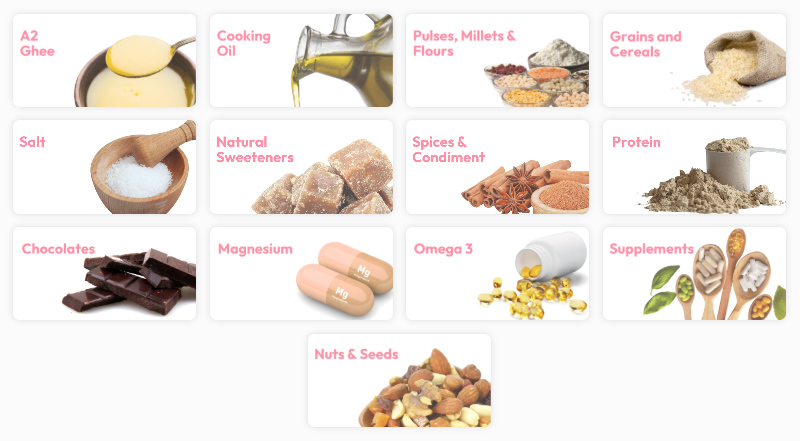Essential Minerals Boost: 5 Incredible Magnesium Advantages

Essential Minerals play a foundational role in human health, and among them, magnesium has captured significant attention. As one of the most talked-about nutrients in the wellness world today, magnesium has sparked discussions, debates and even confusion among consumers trying to understand whether it is a genuine essential mineral or another passing trend. This blog provides research-backed clarity, helping you understand the real role of magnesium, its link to essential minerals, deficiency concerns, supplementation needs and how to choose a high-quality supplement.
Table of Contents
Essential Minerals and Why Magnesium Stands Out
Essential Minerals are nutrients the body cannot produce on its own. They must come from food or supplementation to maintain normal function. Among all essential minerals, magnesium has earned the spotlight because it supports more than 300 biochemical reactions, directly influencing energy production, muscle function, nerve signaling, stress management and even sleep quality.
Magnesium has taken the wellness world by storm, capturing headlines and sparking extensive discussion. Touted as the ultimate fix for stress, sleep and overall health, it has quickly become a go-to solution for many.
As magnesium earns its place in the spotlight, misleading claims and confusion often follow, leaving consumers wondering does everyone need a supplement, or if it is just a health fad. To separate fact from fiction, this blog will help you understand whether supplementation is necessary and how to choose a high-quality product that truly delivers.
Essential Minerals in Daily Health: The Core Benefits of Magnesium
As part of the broader category of Essential Minerals, magnesium performs several critical functions. Here’s a breakdown of science-backed benefits:
1. Boosts Energy and Fights Fatigue
Magnesium plays a central role in producing ATP, the molecule that fuels every cell in your body. When magnesium levels drop, your cells can’t generate energy efficiently, leading to constant tiredness, lower stamina, and reduced physical performance.
2. Supports Nerve and Muscle Function
Magnesium helps muscles contract and relax smoothly while also supporting proper nerve signaling. Low levels can disrupt this balance, showing up as muscle cramps, twitches, stiffness, or even restless legs.
3. Promotes Restful Sleep
Magnesium regulates melatonin, the hormone that controls your sleep-wake cycle. It also activates the parasympathetic nervous system, which helps your body switch into “rest mode,” making it easier to fall asleep and stay asleep.
4. Helps Reduce Stress
Known as a natural calming mineral, magnesium helps stabilise cortisol levels, the hormone linked to stress. Adequate magnesium can improve mood balance and make your body more resilient during stressful situations.
5. Supports Heart Health and Blood Pressure
Magnesium helps maintain a steady heartbeat by supporting the electrical signals that control heart rhythm. It also assists blood vessels in relaxing, which contributes to healthy blood pressure levels.
6. Regulates Blood Sugar Levels
Magnesium supports insulin function, helping glucose move efficiently into cells. This improves insulin sensitivity and plays a key role in metabolic health, especially for individuals concerned about fluctuating sugar levels.
7. Supports Bone Strength and Repair
About 60% of the body’s magnesium is stored in bones. It works alongside calcium and vitamin D to build and maintain strong bone structure, making it essential for preventing long-term deficiencies and supporting bone repair.
Essential Minerals Deficiency: Why Magnesium Shortfall Is So Common
Despite being widely present in leafy greens, nuts, seeds and whole grains, magnesium deficiency is extremely common. Studies estimate that 48-60% of Indian adults fall short of their daily magnesium needs with higher risk among pregnant women and high-stress urban populations.
Key Causes of Magnesium Deficiency
1. Highly processed foods
Modern diets are dominated by packaged, refined and convenience foods that undergo extensive processing. During milling, bleaching and refining, the natural essential minerals found in whole grains, legumes and seeds, especially magnesium are stripped away. As a result, even individuals who eat sufficient calories may fall short on nutrient intake. This dietary pattern not only reduces magnesium consumption but also displaces magnesium-rich foods like leafy greens, nuts and whole grains from the diet.
2. Declining soil quality
The nutrient content of plant-based foods depends heavily on the mineral richness of the soil they grow in. Over time, intensive farming, chemical fertilizers and pesticide-heavy agricultural practices have depleted soils of essential minerals, including magnesium. With soil becoming less nutrient-dense, crops absorb fewer minerals, resulting in produce that contains significantly lower magnesium levels than decades ago. Even health-conscious individuals may unknowingly be consuming foods that are less nutrient-rich than expected.
3. Chronic stress
Prolonged physical or emotional stress activates the body’s stress-response system, increasing the release of cortisol and adrenaline. This biochemical process speeds up urinary excretion of magnesium, causing the body to lose more than it can replenish. Additionally, magnesium plays a key role in calming the nervous system, so chronic stress creates a cycle where magnesium deficiency worsens stress, and stress further depletes magnesium levels.
4. Medication interactions
Several commonly used medications interfere with magnesium absorption or increase its loss. Proton pump inhibitors (PPIs) reduce stomach acid, which is necessary for optimal mineral absorption. Diuretics increase urinary output, causing significant magnesium loss through urine. Certain antibiotics bind to magnesium in the gut, preventing it from being absorbed. These interactions can lead to long-term depletion, especially among individuals on chronic medication.
5. Excessive alcohol or caffeine
Both alcohol and caffeine act as diuretics, increasing urine production and accelerating the loss of essential minerals like magnesium. Alcohol also impairs digestive enzyme activity and damages the intestinal lining over time, reducing magnesium absorption. High caffeine intake, whether from coffee, energy drinks or pre-workouts stimulates the kidneys to excrete more magnesium and disrupts the balance of electrolytes in the body. Regular, heavy consumption of either can significantly lower magnesium levels.
Essential Minerals Supplementation: Choosing the Right Magnesium Form

Magnesium supplements come in various forms, each tailored to different health needs. Consulting a healthcare provider is the best way to determine the right type and dosage.
| Type of Magnesium | Key benefits | When to avoid |
| Citrate | Highly bioavailable, supports digestion, relieves constipation | Renal insufficiency |
| Glycinate | Superior absorption, promotes relaxation, aids sleep, supports muscle function | Kidney impairment, hypotension, individuals prone to drowsiness |
| Oxide | Laxative effect, used for relieving constipation | Kidney impairment, individuals prone to diarrhea/loose stools |
| Malate | Supports energy production, reduces muscle fatigue | Kidney impairment, individuals with insomnia, sensitive to stimulants |
| Taurate | Cardioprotective, supports heart health, regulates blood pressure | Kidney impairment, individuals on antihypertensive drugs |
| L-Threonate | Enhances cognitive function, supports brain health | Renal insufficiency |
| Chloride | Improves magnesium status, used in topical applications | Kidney impairment, individuals with sensitive stomach (oral route) |
| Sulfate | Used for muscle relaxation, bath soaks, IV therapy | Kidney impairment, prone to diarrhea, individuals on antihypertensive drugs |
| Orotate | Supports cardiovascular health, enhances cellular repair | Kidney impairment, individuals on antihypertensive & anticoagulant drugs |
Essential Minerals Absorption Challenges: What to Consider Before Supplementing
Magnesium supplements can help bridge the dietary gaps but they come with their own set of considerations. Before reaching for a bottle, understanding potential challenges can help you maximize magnesium benefits.
1. Absorption Variability
Not all forms are absorbed equally. Some pass through the digestive system without delivering significant benefit.
2. Incorrect Type or Dosage
Taking too little may not fix deficiency, while too much can increase the risk of side effects or toxicity.
3. Hidden Synthetic Additives
Some brands use artificial fillers, preservatives and binders that may reduce effectiveness or cause irritation.
4. Quality Control Issues
Without proper testing, supplements may contain impurities or deliver inconsistent potency.
This is where choosing a trusted brand becomes crucial.
Essential Minerals and Over-Supplementation: What You Need to Know
Prioritize including magnesium-rich foods such as leafy greens, nuts, seeds, legumes, and whole grains as your primary sources of intake. While supplements can aid in correcting deficiencies it should enhance, not substitute, a well-rounded diet. Always follow the recommended supplement dose advised by your healthcare provider.
Magnesium is incredibly beneficial, but more is not always better.
Dietary Sources Should Come First
Leafy greens
Spinach, kale and other leafy vegetables are naturally rich in magnesium and also provide chlorophyll, antioxidants and micronutrients that support energy production and cell repair. Their high nutrient density makes them one of the most reliable whole-food sources.
Nuts
Almonds, cashews and peanuts contain both magnesium and healthy fats. These fats improve satiety and help regulate blood sugar, making nuts a nutrient-dense snack that contributes to daily magnesium intake and overall metabolic balance.
Seeds
Pumpkin, chia and flax seeds deliver concentrated magnesium along with fiber and plant-based omega fats. This combination supports digestion, heart health and steady energy release through the day.
Legumes
Beans, lentils and chickpeas offer magnesium plus plant protein, fiber and slow-digesting carbohydrates. Together, they help maintain stable blood glucose levels and support muscle recovery and gut health.
Whole grains
Unrefined grains like khapli wheat, brown rice, oats and barley retain their bran and germ layers, where most magnesium naturally exists. They also provide B-vitamins, iron and dietary fiber that work synergistically to support metabolism, immunity and sustained energy.
Dark Chocolate
High-quality dark chocolate (70% and above) is a surprisingly rich source of magnesium, offering both a mineral boost and antioxidants like flavonoids. These compounds support heart health, improve circulation and help reduce oxidative stress. When consumed in moderation, dark chocolate provides a balanced way to increase magnesium intake while satisfying cravings with a nutritionally dense treat.
CHECK OUT PINK TIGER VERIFIED PRODUCTS FOR YOUR DAILY USE

Risks of Excess Magnesium Supplementation
Although rare in healthy individuals, excessive intake can lead to:
- Diarrhea
- Nausea and vomiting
- Low blood pressure
- Lethargy
- Respiratory distress
- Cardiac complications (especially in kidney disorders)
Additionally, too much supplemental magnesium can interfere with the absorption of other essential minerals such as zinc and calcium.
The Pink Tiger way to ensure quality and authenticity
Consumers shouldn’t have to second-guess the quality of their supplements, which is why You Care Lifestyle upholds the highest standards with the Pink Tiger Stamp, a mark of trust ensuring every product meets the highest quality standards. To guarantee authenticity and effectiveness, we conduct rigorous quality tests for magnesium supplements under the Pink Tiger standard:
1. Label claim verification: To assess that the elemental magnesium levels match the promised dosage, confirming the accuracy and effectiveness.
2. Heavy metal screening: To identify toxic contaminants such as lead, arsenic, cadmium, and mercury ensuring the supplement meets safety limits and is free from harmful exposure.
3. Mineral composition analysis: To analyze the total magnesium content and its bioavailability for optimal absorption and intended potency
A well-formulated magnesium supplement can be transformative for overall health. With the Pink Tiger Stamp, consumers no longer have to navigate these uncertainties. Rigorous third-party testing ensures each product meets the highest standards, allowing you to choose supplements backed by science, not marketing claims.
If you’re looking for a magnesium supplement, choose ones that meet the highest standards. Look for the Pink Tiger stamp, a symbol of quality you can rely on. Explore our trusted selections here:

Essential Minerals and Choosing the Right Magnesium Supplement
If you’re considering magnesium supplementation:
~ Look for third-party testing
~ Avoid unnecessary fillers
~ Understand the specific form you need
~ Always consult your healthcare provider for dosage
~ Prioritize food sources but supplement when necessary
With the Pink Tiger Stamp, you have reassurance that the supplement you’re choosing aligns with strict quality standards.
Essential Minerals, Magnesium and Your Health
Magnesium is far from a passing trend, it is one of the most crucial Essential Minerals your body needs daily. From energy and sleep to heart health and stress resilience, its impact is profound. Yet, deficiency is widespread, making supplementation a practical option for many people when done correctly.
By choosing high-quality magnesium supplements backed by transparent testing, you’re not just following a wellness trend, you’re supporting long-term health.
Frequently Asked Questions (FAQs)
1. What is the best way to increase magnesium naturally?
The most effective and sustainable way to improve magnesium levels is through whole foods. Leafy greens, nuts, seeds, legumes, whole grains and dark chocolate naturally contain magnesium paired with fiber, antioxidants and synergistic minerals that support absorption. Unlike supplements, food sources offer a steady, bioavailable supply that fits into everyday meals without the risk of excessive intake.
2. Do I need a magnesium supplement if I eat a balanced diet?
Many people who follow a varied, nutrient-dense diet can meet their magnesium needs without supplementation. However, modern diets, soil depletion and lifestyle factors (stress, caffeine, alcohol) may increase requirements. A supplement may be helpful for people experiencing low intake, muscle cramps, poor sleep or higher metabolic demands. It’s best to evaluate your diet first and then consider supplementing if gaps persist.
3. How do I know if I’m low in magnesium?
Early signs of low magnesium can be subtle and often overlap with other conditions. Common symptoms include muscle cramps, fatigue, headaches, low mood, restless sleep and increased irritability. Chronic low intake may also contribute to blood sugar imbalances and poor stress tolerance. A health professional can help confirm deficiency through assessment, as blood tests are not always fully reflective of magnesium status.
4. Which form of magnesium is best absorbed?
Bioavailability varies across magnesium types. Magnesium glycinate is gentle and highly absorbed, making it suitable for sleep and relaxation. Magnesium citrate also absorbs well and supports digestion. Magnesium oxide provides a higher elemental dose but is less easily absorbed by the body. Choosing the right form depends on your goal – sleep, muscle recovery, or digestive support.
5. Is it possible to get too much magnesium from food?
No, it’s extremely rare to overdose on magnesium through diet alone because the kidneys efficiently filter excess amounts. Whole-food sources provide moderate, balanced levels paired with nutrients that support safe absorption. Excess intake typically occurs only through supplements or medications containing magnesium.
Disclaimer: This content is for informational purposes only and is not a substitute for professional medical advice, diagnosis, or treatment. Always consult your healthcare provider before trying any new food item, supplement, or product, especially if you have an existing medical condition or allergies.
References
1. Orlova, S., Dikke, G., Pickering, G., Yaltseva, N., Konchits, S., Starostin, K., & Bevz, A. (2021). Risk factors and comorbidities associated with magnesium deficiency in pregnant women and women with hormone-related conditions: analysis of a large real-world dataset. BMC Pregnancy and Childbirth, 21(1). https://doi.org/10.1186/s12884-021-03558-2
2. Bangale, N., Mahesh, M., Sudagani, J., Mylapore, S. S., Bharti, B. B., Dhandhania, V. K., Meitei, S. P., Kulkarni, S., & Chatterjee, A. (2022). Demystifying the micronutrient deficiency burden in India. IP Journal of Nutrition Metabolism and Health Science, 5(3), 91–99. https://doi.org/10.18231/j.ijnmhs.2022.017
3. Schwalfenberg, G. K., & Genuis, S. J. (2017). The importance of magnesium in clinical healthcare. Scientifica, 2017, 1–14. https://doi.org/10.1155/2017/4179326
4. Guerrera, M. P., Volpe, S. L., & Mao, J. J. (2009, July 15). Therapeutic uses of magnesium. AAFP. https://www.aafp.org/pubs/afp/issues/2009/0715/p157.html
5. Office of Dietary Supplements – magnesium. (n.d.). https://ods.od.nih.gov/factsheets/Magnesium-HealthProfessional/